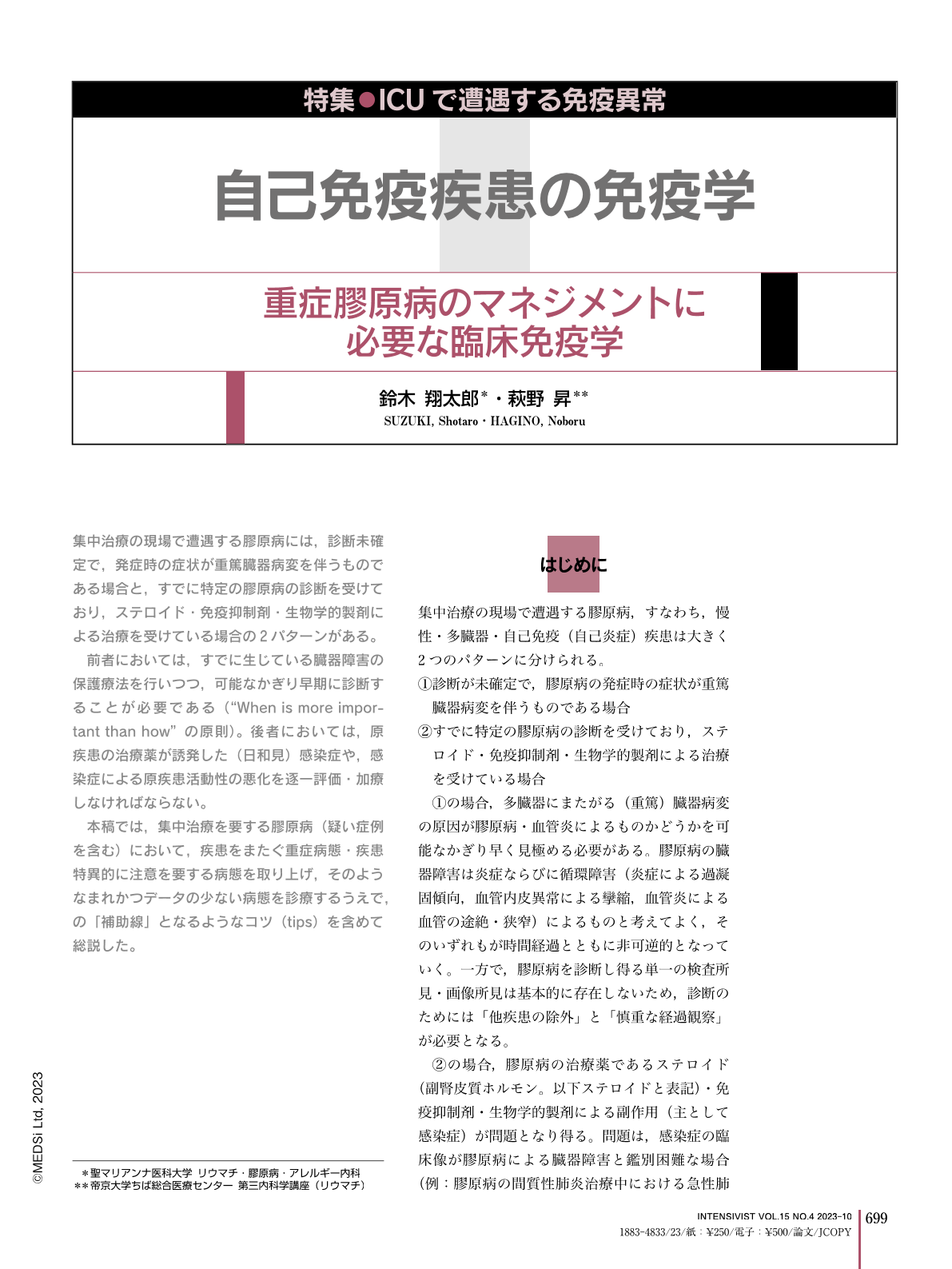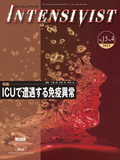Japanese
English
- 有料閲覧
- Abstract 文献概要
- 1ページ目 Look Inside
- 参考文献 Reference
集中治療の現場で遭遇する膠原病には,診断未確定で,発症時の症状が重篤臓器病変を伴うものである場合と,すでに特定の膠原病の診断を受けており,ステロイド・免疫抑制剤・生物学的製剤による治療を受けている場合の2パターンがある。
前者においては,すでに生じている臓器障害の保護療法を行いつつ,可能なかぎり早期に診断することが必要である(“When is more important than how”の原則)。後者においては,原疾患の治療薬が誘発した(日和見)感染症や,感染症による原疾患活動性の悪化を逐一評価・加療しなければならない。
本稿では,集中治療を要する膠原病(疑い症例を含む)において,疾患をまたぐ重症病態・疾患特異的に注意を要する病態を取り上げ,そのようなまれかつデータの少ない病態を診療するうえで,の「補助線」となるようなコツ(tips)を含めて総説した。
Rheumatic diseases manifest in two distinct categories in the realm of intensive care: those with an indeterminate diagnosis accompanied by severe organ dysfunction at presentation and those with a pre-established diagnosis managed with corticosteroids, immunosuppressants, and biologics. For those with an indeterminate diagnosis, a prompt diagnosis is imperative, even as clinicians administer therapies to mitigate existing organ damage, a principle succinctly encapsulated as “When is more important than how.” For those with a pre-established diagnosis, the focus shifts to the assessment and management of infections, including opportunistic infections triggered by immunomodulatory medications or exacerbation of the primary disease due to concurrent infections. This article offers a narrative review of general and disease-specific conditions that deserve attention in the treatment of rheumatic diseases in an intensive-care setting. This review further provides practical information that can serve as invaluable aids in the treatment of these uncommon and often poorly documented conditions.

Copyright © 2023, MEDICAL SCIENCES INTERNATIONAL, LTD. All rights reserved.


